
Tudo sobre bateria solar: o guia definitivo para armazenar
As solar energy adoption continues to rise, the importance of batteries for solar panels has become increasingly evident. These batteries are vital for storing the energy generated by solar panels, allowing homeowners and businesses to maximize their use of renewable energy. Whether you aim to go off-grid, reduce your dependence on the electrical grid, or ensure a backup power source during outages, understanding the different types of batteries for solar panels and their benefits is crucial.
The Role of batteries for solar panels
Batteries for solar panels store the excess energy generated by your solar system, allowing you to use it when the sun isn’t shining—during the night, on cloudy days, or during power outages. Without a battery, any excess energy your solar panels produce during the day is typically sent back to the grid, often without compensation or at a lower rate than what you pay for grid electricity.
Benefits of using batteries for solar panels
- Energy independence: Batteries for solar panels allow you to store energy and use it when you need it most, reducing your reliance on the grid. This is especially beneficial in areas with frequent power outages or for those looking to live off-grid.
- Maximized energy usage: With batteries for solar panels, you can store excess solar energy generated during peak sunlight hours and use it later when your energy demand is higher, ensuring that no energy goes to waste.
- Cost savings: By storing solar energy, batteries for solar panels can help reduce or even eliminate your electricity bills. Some areas also offer time-of-use rates, where electricity costs more during peak hours. With a battery, you can avoid using expensive grid power by relying on stored solar energy.
- Environmental Impact: Storing and using more of your solar energy with batteries for solar panels reduces the need for fossil fuel-generated electricity, lowering your carbon footprint and contributing to a cleaner environment.

Types of batteries for solar panels
When selecting a battery for your solar energy system, it’s essential to understand the different types of batteries for solar panels available. Each type has its own advantages and is suited to specific needs and budgets.
Lead-acid batteries are one of the oldest and most commonly used types of batteries for solar panels. They are reliable, relatively inexpensive, and widely available.
- Price: Typically, lead-acid batteries are more affordable than other types of batteries for solar panels, making them a popular choice for budget-conscious consumers.
- Lifespan: These batteries usually last between 3 to 5 years, depending on usage and maintenance.
- Maintenance: Lead-acid batteries require regular maintenance, including checking water levels and ensuring proper ventilation.
- Best for: Off-grid systems where cost is a significant factor and maintenance is not an issue.
Lithium-ion batteries are the most advanced and efficient type of batteries for solar panels. They are known for their high energy density, long lifespan, and minimal maintenance requirements.
- Price: While more expensive upfront, lithium-ion batteries offer better long-term value due to their efficiency and durability.
- Lifespan: These batteries can last up to 10-15 years with minimal degradation in performance.
- Maintenance: Lithium-ion batteries require little to no maintenance, making them a convenient option for most users.
- Best for: Residential and commercial systems where efficiency, space-saving, and long-term performance are priorities.
Saltwater batteries are a newer, more environmentally friendly option for batteries for solar panels. They do not contain heavy metals, making them easier to recycle and dispose of.
- Price: Saltwater batteries are moderately priced, typically between lead-acid and lithium-ion batteries.
- Lifespan: These batteries have a lifespan similar to lead-acid batteries, around 5-7 years.
- Maintenance: They are low-maintenance and non-toxic, making them a safer option for the environment and users.
- Best for: Environmentally conscious consumers looking for a sustainable alternative to traditional batteries for solar panels.
Flow batteries are unique in that they store energy in liquid electrolytes contained in external tanks. This design allows for scalable storage capacities, making them ideal batteries for solar panels in larger installations.
- Price: Flow batteries tend to be on the higher end of the price spectrum but offer scalability for large energy storage needs.
- Lifespan: They have a long lifespan, often exceeding 10 years, with minimal capacity degradation over time.
- Maintenance: These batteries require moderate maintenance to ensure the proper functioning of the electrolyte solution.
- Best for: Large-scale solar installations, such as commercial or industrial setups, where scalable energy storage is necessary.
Factors to consider when choosing batteries for solar panels
When selecting the best batteries for solar panels for your solar energy system, it’s important to consider several factors to ensure you get the most value and efficiency from your investment.
- Capacity: Measured in kilowatt-hours (kWh), capacity refers to the total amount of energy the battery can store. Choose batteries for solar panels with sufficient capacity to meet your energy needs, especially if you plan to go off-grid or use solar energy during peak hours.
- Power: Power is the amount of electricity batteries for solar panels can deliver at any given time, measured in kilowatts (kW). Ensure your battery can provide enough power to run your essential appliances and devices simultaneously.
- The Depth of Discharge (DoD) indicates how much of the battery’s capacity can be used without significantly affecting its lifespan. For example, a battery with an 80% DoD allows you to use 80% of its capacity before needing a recharge. A higher DoD in batteries for solar panels means you can use more of your battery’s capacity, making it more efficient.
- Round-trip efficiency is the percentage of energy that can be used from the battery compared to the amount of energy it took to store it. For example, a battery with 90% efficiency will return 90 kWh of usable energy for every 100 kWh stored. Higher efficiency batteries for solar panels reduce energy loss and maximize the effectiveness of your solar energy system.
- Consider the battery’s warranty and expected lifespan before purchasing. Most batteries for solar panels come with warranties ranging from 5 to 15 years. A longer warranty period indicates the manufacturer’s confidence in the battery’s durability and performance.
Integration with solar panels: How batteries work in a solar energy system
Batteries for solar panels are integrated into your solar energy system to store excess energy generated during peak sunlight hours. This stored energy can then be used when solar production is low, such as at night or during cloudy weather, ensuring a consistent power supply.
- Energy storage: During the day, your solar panels generate electricity, some of which is used to power your home. Any excess energy is stored in the battery.
- Energy use: When solar production decreases, your system draws energy from the battery, reducing or eliminating the need to pull electricity from the grid.
- Grid interaction: In a grid-tied system, if the battery is fully charged and your panels are still generating excess energy, it can be sent back to the grid, often earning you credits through net metering. In Spain, you will need a certification so that you are legal to get compensated. Reach out to us if you are interested.
Currently, there are all-in-one battery systems where the battery includes a built-in micro inverter and a solar controller. It supports up to 5 expansion batteries and reaches 9,6 kWh capacity. This makes off-grid living more achievable and economic-friendly.

Conclusion
Investing in batteries for solar panels is a smart move for anyone looking to maximize the benefits of their solar energy system. By choosing the right type of battery, you can store excess solar energy, reduce your reliance on the grid, and ensure a steady power supply even during outages. Consider factors such as capacity, depth of discharge, and efficiency when selecting a battery to ensure it meets your energy needs and offers the best value for your investment.
Contact us via email, WhatsApp or call us directly if you have any questions or need help to choose your own Robinsun plugin solar kit.


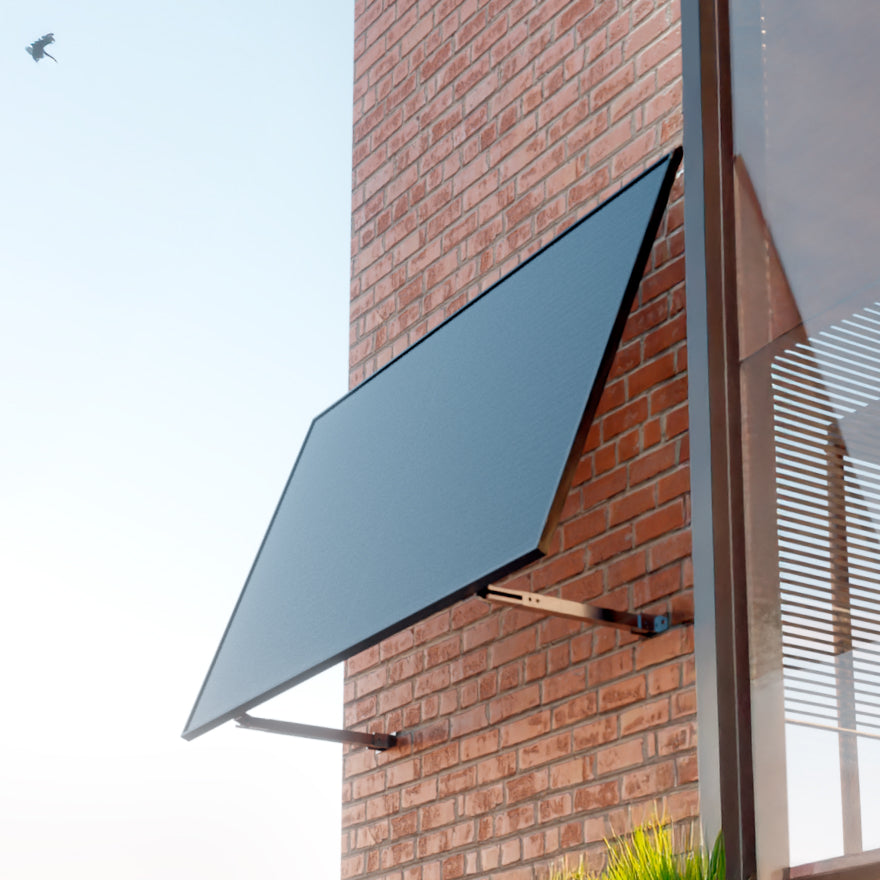
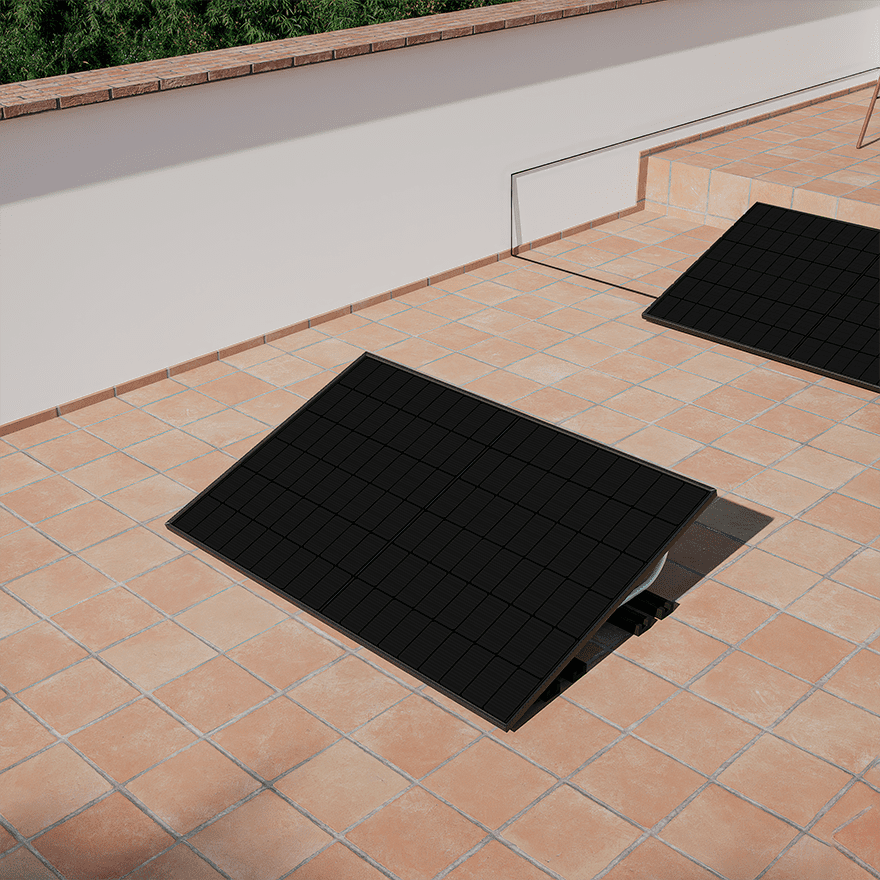
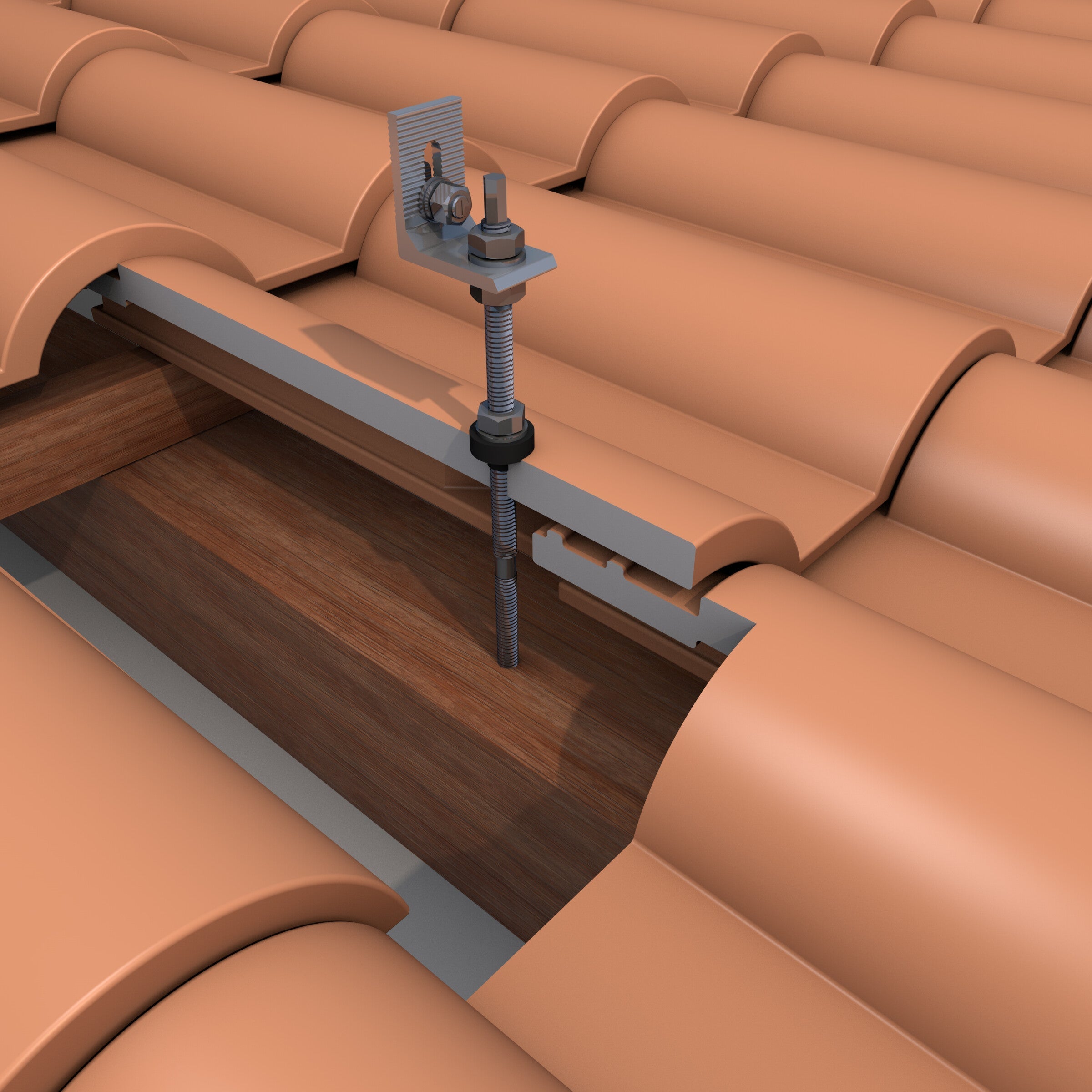

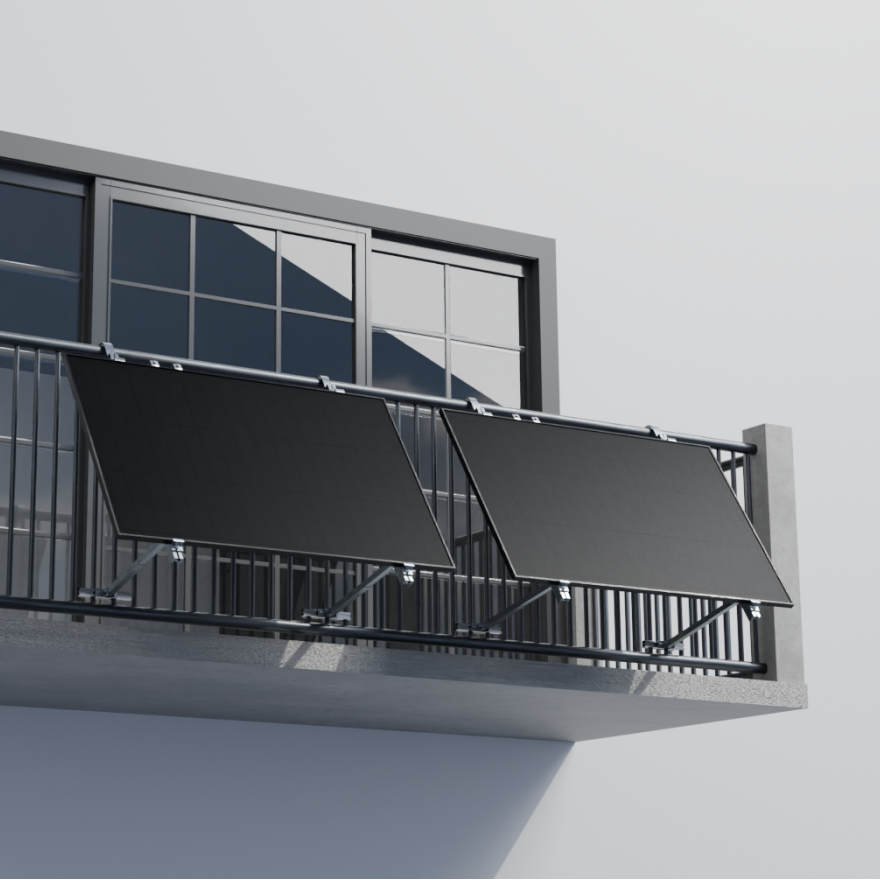
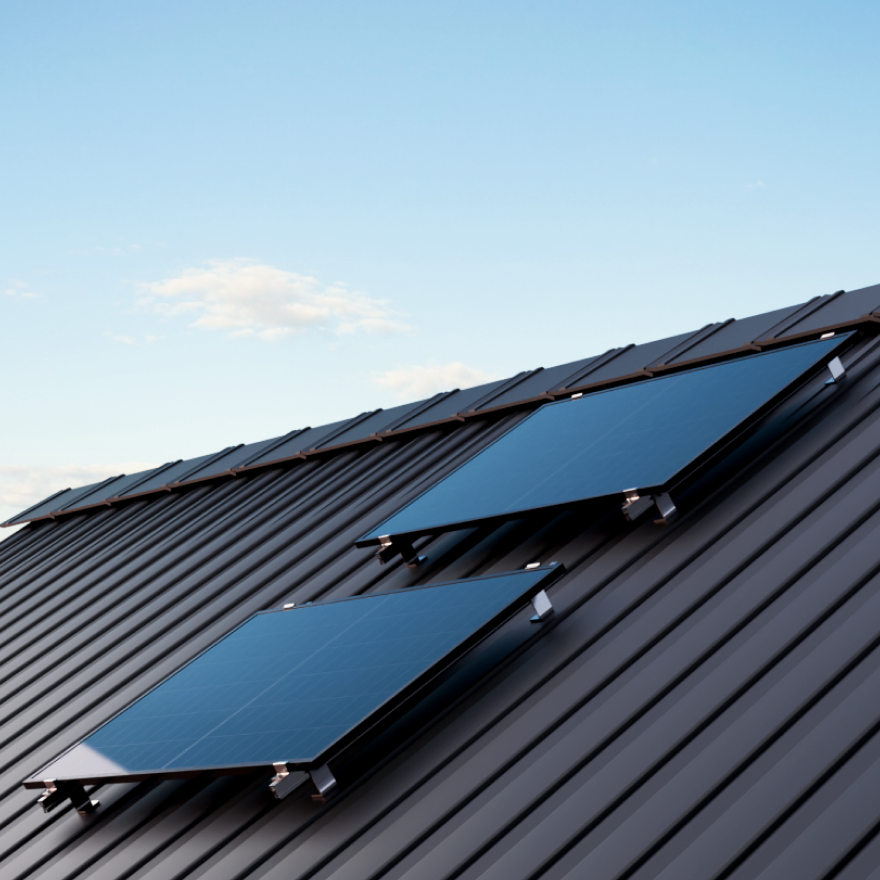
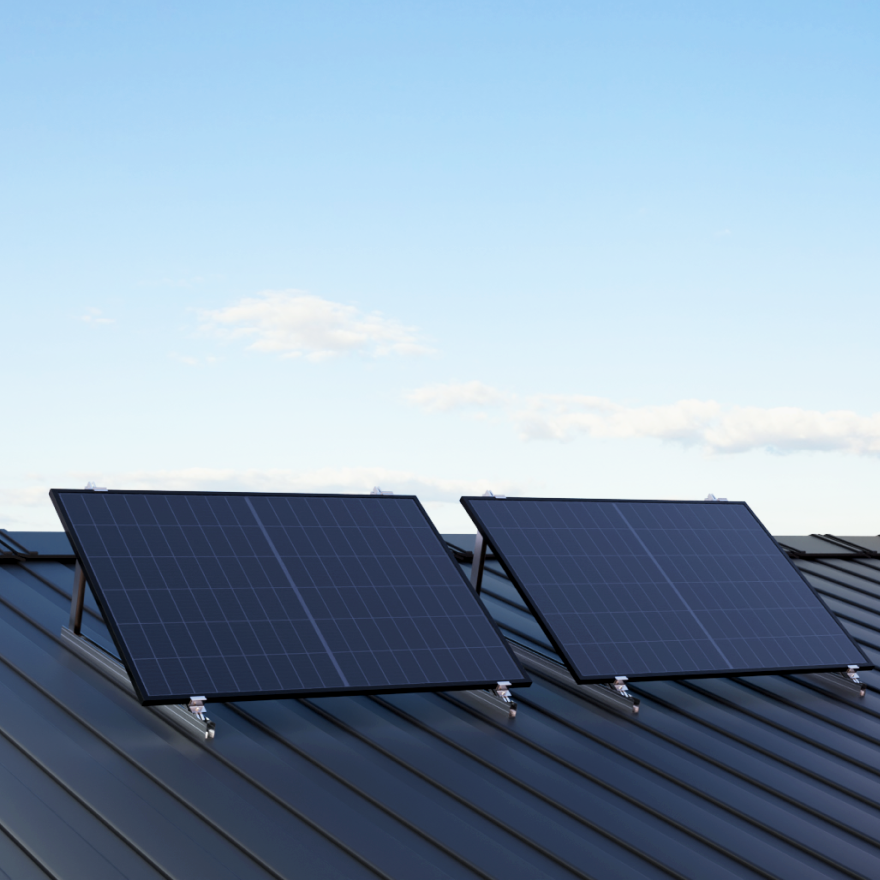
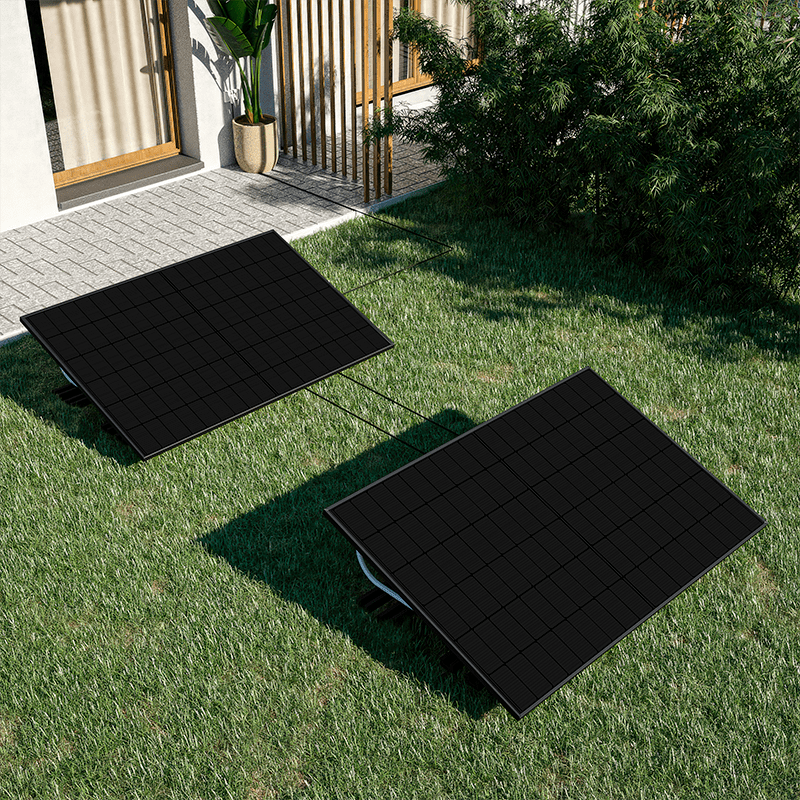
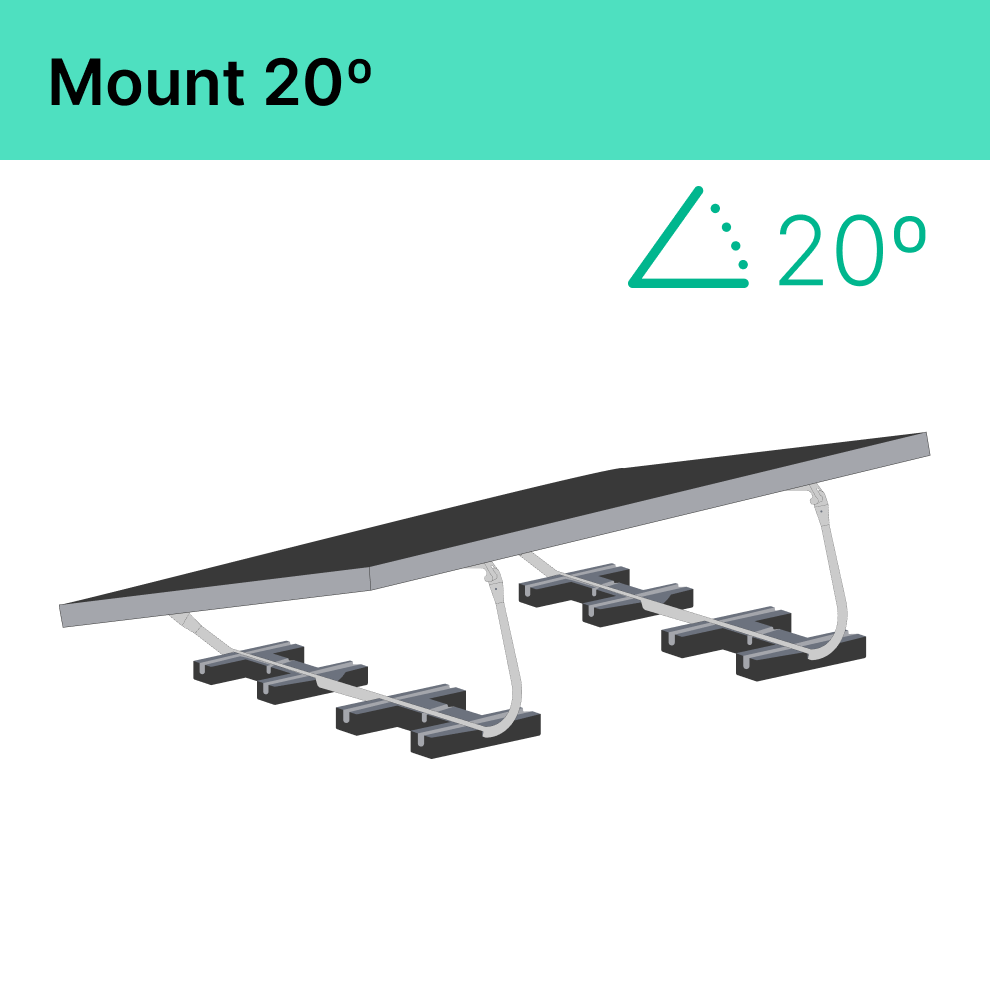
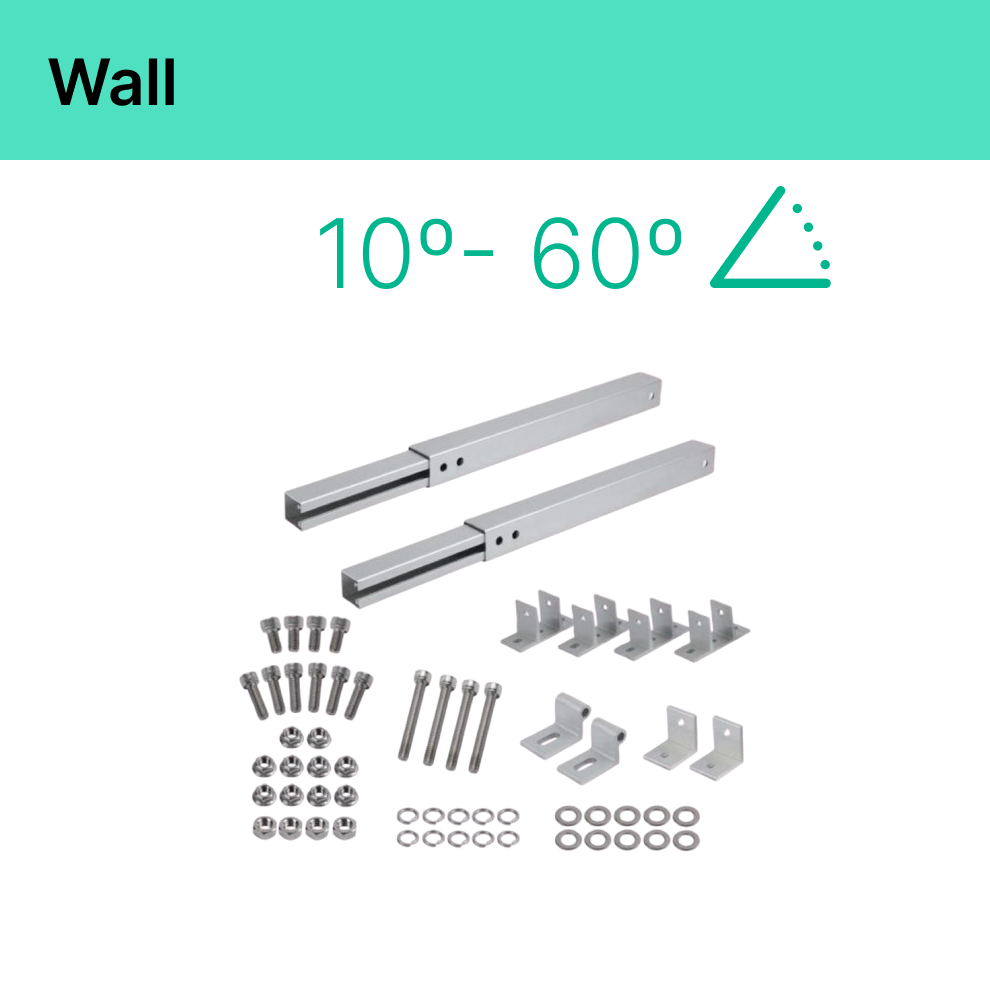
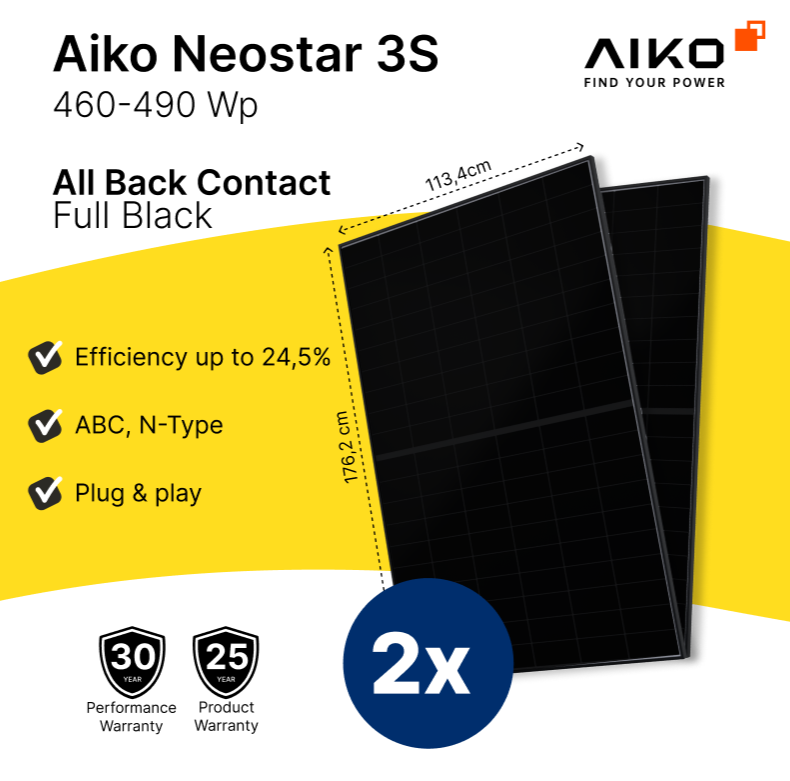
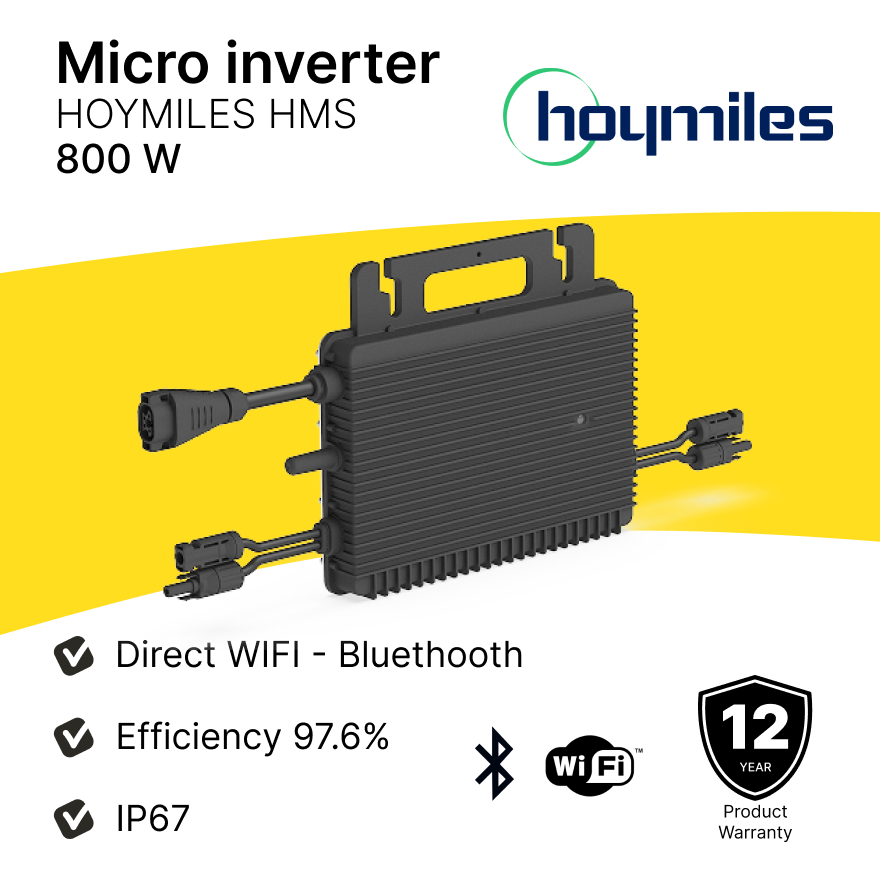
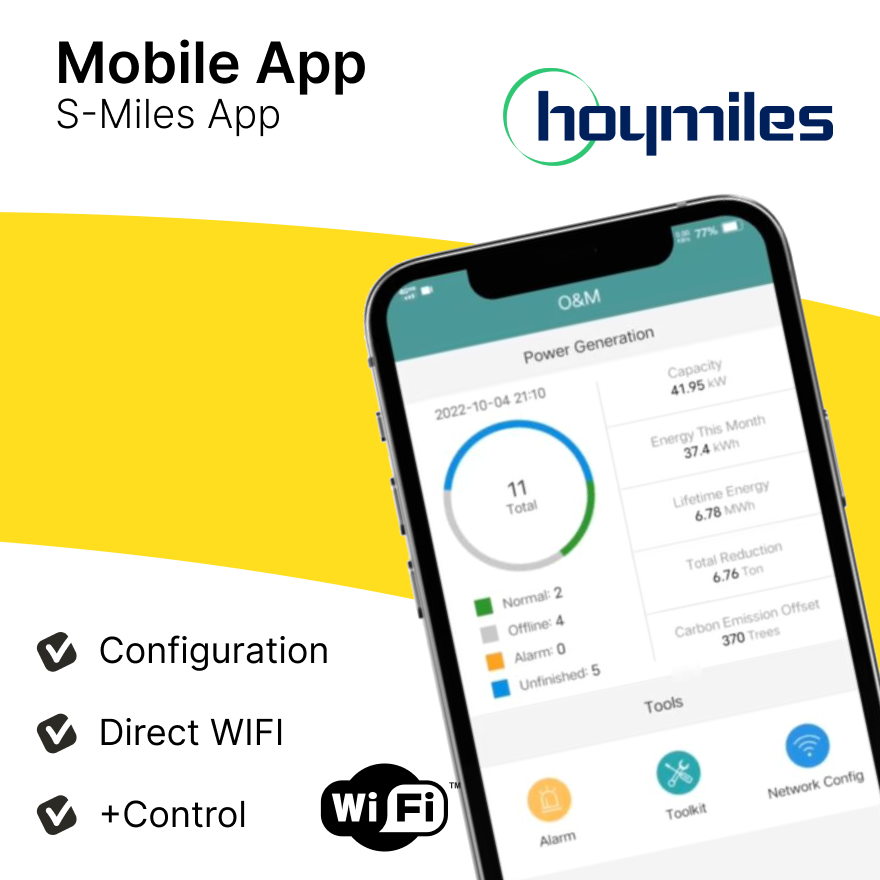
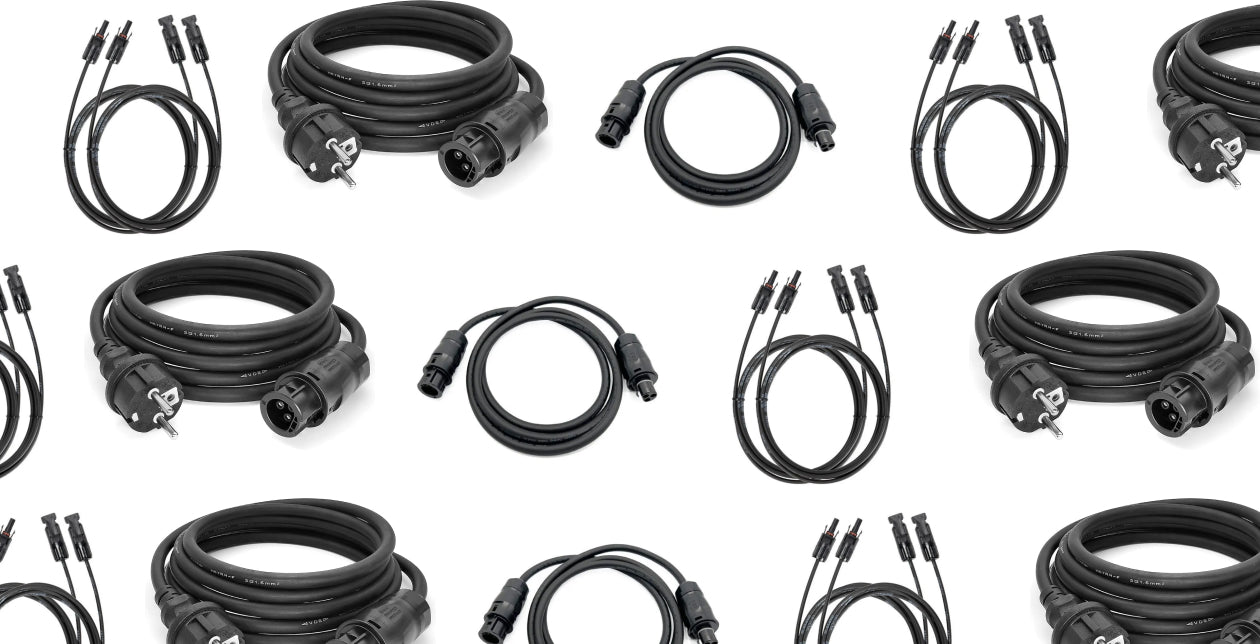
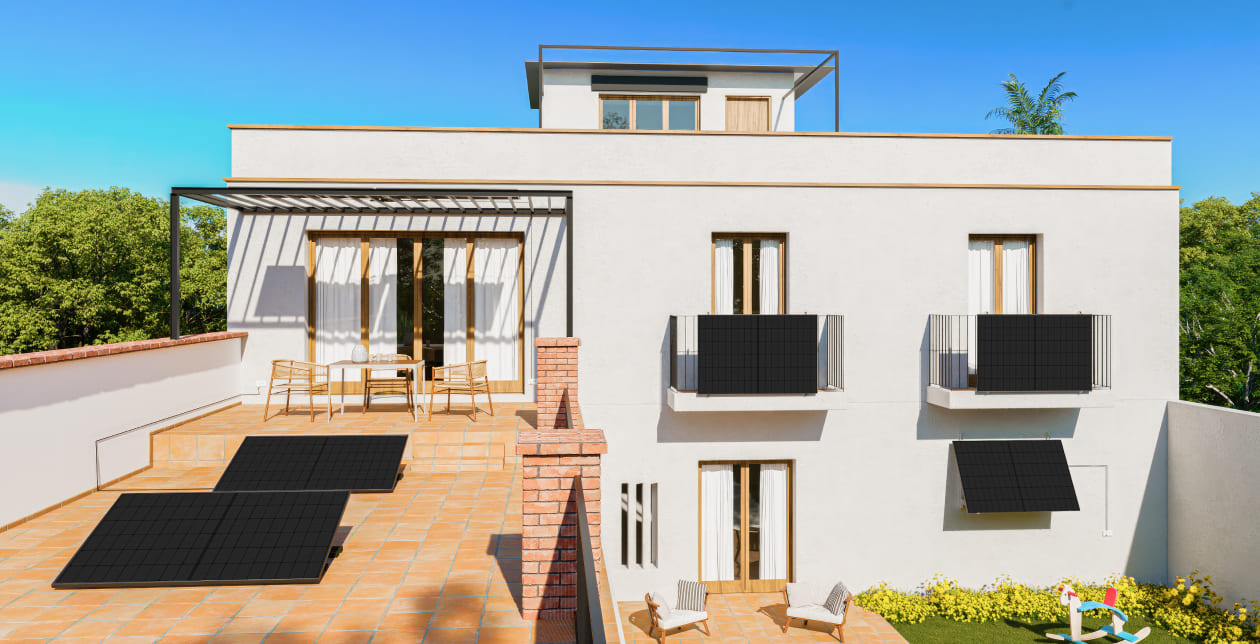
Deixe um comentário
Este site está protegido pela Política de privacidade da hCaptcha e da hCaptcha e aplicam-se os Termos de serviço das mesmas.